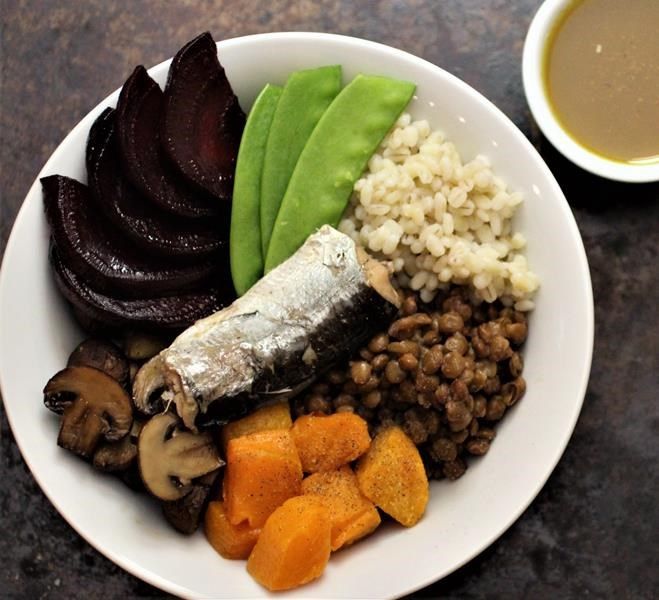
Love your heart by choosing heart-healthy plant-based foods more often
TORONTO — The month of February might feature Valentine’s chocolate, but with 1.3 million Canadians living with heart disease it’s also a time to focus on heart-healthy foods.
A healthy, balanced diet should consist of a variety of natural, whole and minimally processed foods, says Carol Dombrow, a Heart and Stroke Foundation dietitian.
“This message … is never going to change. No matter what they find, whatever new research comes out, this is still going to be an important message,” she says.
The thinking on healthy eating has changed in recent years. Rather than focusing on single nutrients and highly restrictive diets that aren’t sustainable, research shows the overall quality of one’s diet is more important.
“We’re asking people to eat more vegetables and fruit, to have a variety of protein sources, so include beans and legumes, include lower-fat dairy and alternatives, lean meat, poultry, fish. Have whole grains more often and stay away from highly processed foods,” the Toronto-based dietitian says.
Heart disease is the second-leading cause of death and the leading cause of disability, says Dombrow. Nine in 10 Canadians have at least one risk factor for heart disease and stroke.
But many risk factors are in your power to control. This includes having a healthy diet and maintaining a healthy weight, being physically active and smoke-free, limiting alcohol consumption and reducing stress. It’s also important to manage blood cholesterol levels and diabetes, also a risk factor for heart disease, she adds.
“The simplest message is to make half your plate vegetables and fruit. They’re going to give you so many nutrients, antioxidants, vitamins, minerals, fibre,” says Dombrow. “They’re positive from a healthy weight perspective.”
The rest of the plate should be one-quarter each whole grains and lean protein.
There’s a strong body of research showing the Mediterranean diet has been linked to better heart health, says registered dietitian Zannat Reza. This traditional way of eating in Italy and Greece includes a high ratio of vegetables and fruits, nuts, seeds, whole grains, pulses and olive oil.
Reza likes to put a Canadian spin on it, featuring heart-healthy ingredients grown and produced in this country.
Canada is one of the world’s largest producers of pulses, the edible seeds of plants in the legume family, which include lentils, dry beans, dry peas and chickpeas.
Oil made from canola, grown mainly in Alberta, Saskatchewan and Manitoba, is high in monounsaturated fatty acids which have been shown to reduce blood cholesterol levels. It’s also high in plant omega-3 fats, which help protect against heart attacks and strokes.
Olive, sunflower and safflower oil are also sources of good polyunsaturated and monounsaturated fats, says Dombrow.
Saturated fat, a risk factor for heart disease because it raises blood cholesterol levels, should be avoided.
“It occurs naturally in animal products like meat, eggs and dairy products as well as some plant-based and vegetable oils such as coconut, palm and palm kernel oil,” explains Dombrow.
“Where they fit into highly processed foods is that they’re used in production of baked goods, fried and many processed foods, so we really want to reduce the amount of this type of fat in our diet.”
Flaxseed, grown on the Prairies, is another good source of omega-3 essential fatty acids as well as being high in fibre. In 2014, Health Canada announced that eating 75 ml (5 tbsp) of ground (milled) whole flaxseed per day over three meals helps reduce cholesterol. For the most nutritional benefit, it should be ground.
Other healthy seeds include hemp hearts, pumpkin seeds and quinoa, all grown in Canada.
Another way to boost intake of omega-3s is to eat oily fish at least twice a week, says Reza. The omega-3 fats in salmon, sardines, herring and mackerel can reduce inflammation, triglycerides and blood clotting, all leading to better heart health. Both coasts of the country are known for their seafood.
Whole grains provide fibre, protein and B vitamins. Check ingredients on bread to ensure a whole grain is listed first or second and compare nutrition facts tables for the best per cent daily value.
* This article was originally written and published on https://ca.news.yahoo.com/love-heart-choosing-heart-healthy-203241902.html

